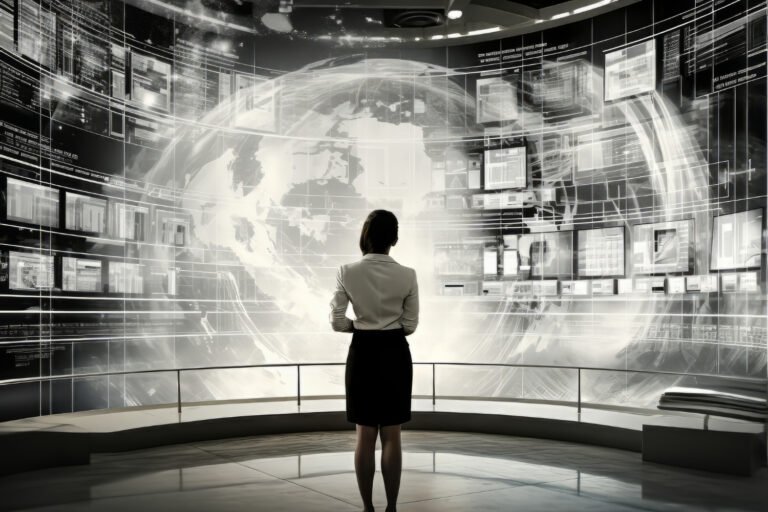The Mental Gymnastics of Climate Change Denial
Understanding the cognitive biases and psychological mechanisms that fuel climate change denial.
Climate change is one of the most pressing issues of our time, yet a significant portion of the population continues to reject its reality or downplay its severity. This article explores the mental processes and cognitive biases that underpin climate change denial, providing insight into the psychology of scepticism and the defense mechanisms people use to protect their existing beliefs from challenging new evidence.
The Psychology Behind Climate Change Denial
Climate change denial involves a complex set of mental gymnastics, fueled by psychological tendencies and biases that help people avoid the uncomfortable reality of environmental crisis. It’s not just about misinformation or scientific illiteracy; it’s about the ways in which our minds work to protect us from the emotional burden of acknowledging the threat that climate change represents.
Key Psychological Mechanisms in Climate Denial
- Motivated Reasoning. People are naturally inclined to seek out information that supports their existing beliefs and reject information that threatens them. This tendency, known as motivated reasoning, makes individuals less likely to accept climate science if it contradicts their worldview, particularly if they perceive that addressing climate change would result in higher taxes or increased government intervention.
- Cognitive Dissonance. When faced with information that contradicts their behavior or beliefs, individuals experience discomfort known as cognitive dissonance. To reduce this discomfort, they may dismiss the evidence of climate change or downplay its severity, allowing them to maintain their current lifestyle without feeling guilty about their impact on the environment.
- Confirmation Bias. Confirmation bias leads people to give more weight to information that confirms their beliefs while ignoring evidence to the contrary. In the context of climate change, sceptics may latch onto isolated cold weather events as “proof” that global warming is a hoax, ignoring the overwhelming evidence of long-term temperature increases and shifting climate patterns.
- Social Identity and Group Loyalty. For many people, beliefs about climate change are linked to their social and political identity. Admitting that climate change is real can feel like betraying their in-group, whether it’s a political party or a community that values individual freedom over collective action. This identity-driven denial is reinforced by group loyalty, making it difficult to change one’s stance without feeling like a traitor.
- Perceived Inefficacy. People are less likely to accept a problem if they believe they are powerless to do anything about it. Climate change, being a global and complex issue, can make individuals feel helpless. This sense of inefficacy often leads to denial as a psychological coping mechanism—it’s easier to deny the problem than to face the anxiety of feeling powerless to solve it.
The Role of Emotions
Emotions play a significant role in climate change denial. Fear, guilt, and anxiety are common emotional responses to the reality of climate change, but they can also trigger defensive reactions. Many people choose denial as a way to avoid these negative emotions. Additionally, the threat of climate change can feel abstract and distant, making it hard for people to emotionally connect with the problem, especially when more immediate personal concerns occupy their attention.
How People Explain Their Scepticism
Participants were asked to explain their climate change scepticism, revealing five common themes:
- Faith in Alternative Science: Many sceptics believe in alternative explanations, such as solar activity or planetary tides, over mainstream climate science.
- Belief in Natural Climate Cycles: Some argue that climate change is part of a natural and inevitable cycle, ignoring evidence of human impact over the past five decades.
- Mistrust in Climate Science: Claims of data manipulation by scientists foster scepticism, with participants questioning the reliability of temperature records and the scientific consensus.
- Failed Predictions: Sceptics cite “false” predictions by climate scientists as proof of unreliability, reflecting a misunderstanding of climate models and the probabilistic nature of projections.
- Ulterior Motives: Some believe climate change is a hoax aimed at wealth redistribution, despite recent studies suggesting rising adaptation costs in developed countries will limit their support for poorer nations.
Overcoming Climate Change Denial
To combat climate change denial, it’s essential to understand and address these psychological factors. Strategies that could help include:
- Framing Climate Action Positively. Emphasizing the positive aspects of climate action—such as job creation, cleaner air, and economic opportunities—can make the message more appealing to those who fear government regulation or economic downturns.
- Building Community Solutions. Encouraging local communities to work together on climate initiatives can help individuals feel more empowered and connected, reducing the perceived inefficacy that fuels denial.
- Communicating with Empathy. Engaging sceptics with empathy, rather than confrontation, can help bridge the gap between opposing views. Acknowledging the emotional and identity-based challenges involved in accepting climate change can open up more productive conversations.
Understanding the mental gymnastics of climate change denial can provide valuable insights into how to better communicate the urgency of climate action and motivate individuals to join the fight against global warming.







